MSWAB Factsheets
Browse & Download a Factsheet
-

NYC Waste Export Factsheet
Learn about the locations that receive NYC’s waste refuse for burning or burial and how much it costs New Yorkers to export.
-

Pups for PRRIA
Plastic waste is not only harmful to humans, it can be harmful to our furry friends too. Learn how the New York State Packaging Reduction and Recycling Infrastructure Act would keep our pups safe.
-

New York's role in the plastic problem
New York's role in the plastic problem and what we can do about it
-
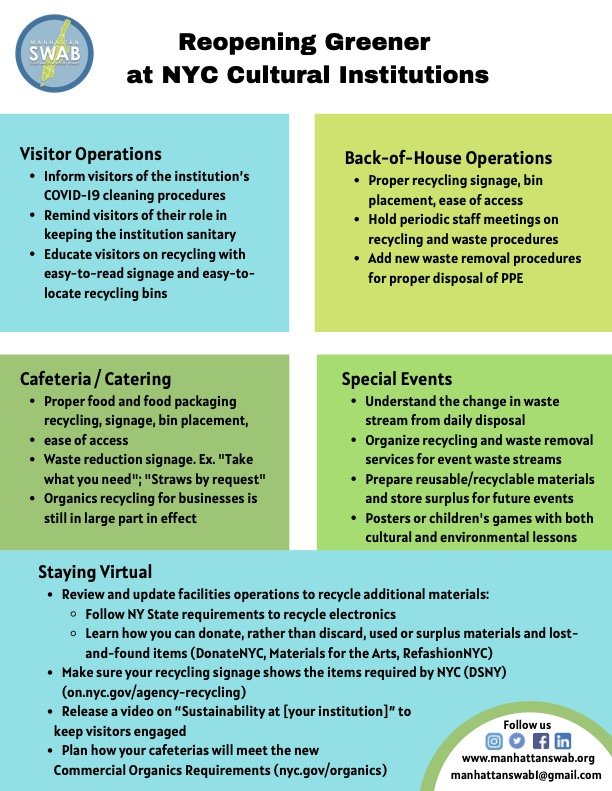
Reopening Greener at NYC Cultural Institutions
This guide helps cultural institutions devise and attain sustainable waste management goals in the time of COVID-19.
-

NYCHA Recycling Fast Facts
NYCHA
See how the MSWAB is supporting NYCHA’s Inner City Green Team to improve recycling access and engagement in public housing complexes.
-

ORGANICS RECYCLING & NYC HEALTH
Diverting organic matter from landfills is the simplest action to reach Zero Waste. This explains how.
-
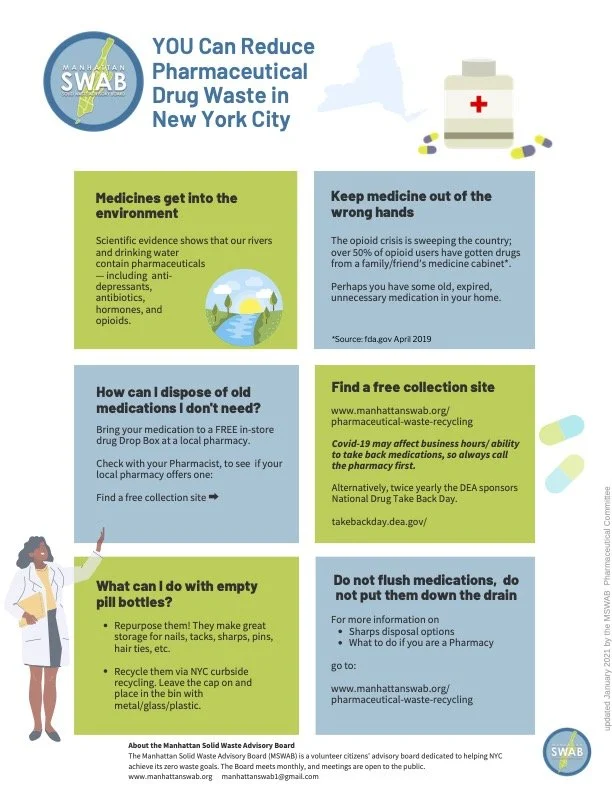
Reduce Pharmaceutical Drug Waste in NYC
This one-page PDF provides instruction for reducing pharmaceutical waste in New York City
-

ADVANCING WASTE REDUCTION IN MULTI-FAMILY BUILDINGS
Learn how staff and residents of multi-family buildings in NYC can improve recycling and reduce organics waste.
-
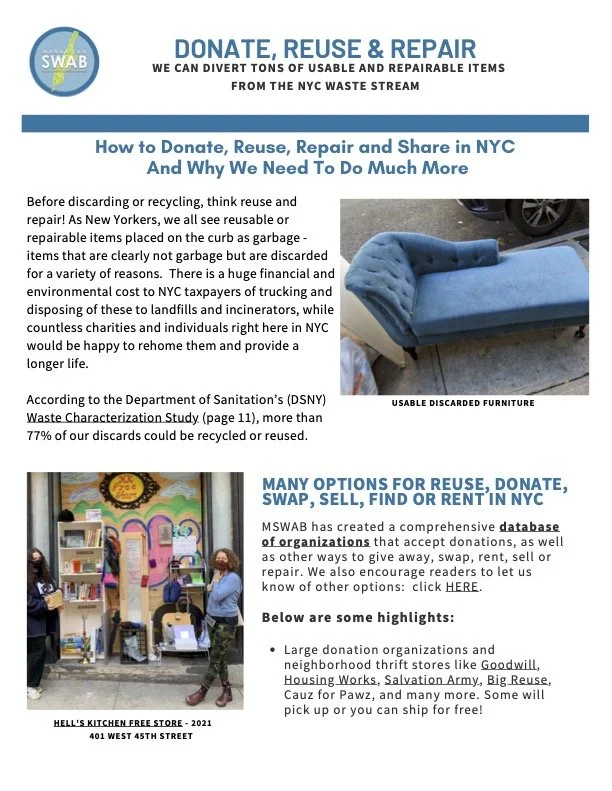
donate, reuse & repair in NYC
In an effort to reduce the large volume of reusable household items and furnishings thrown in the garbage and sent off to landfills, the MSWAB has compiled a list of organizations that will help you donate, share, sell, or swap the things you no longer want.
-
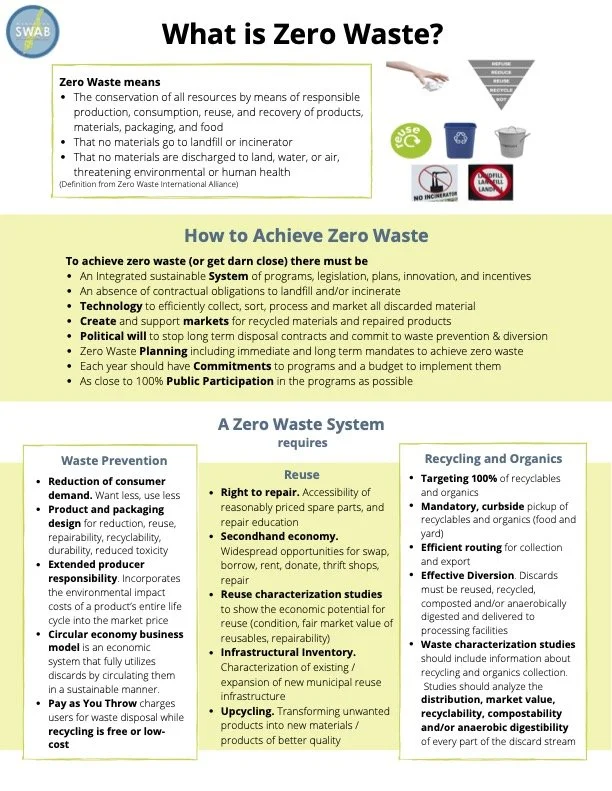
what is zero waste?
This factsheet explains Zero Waste and provides recommendations to help NYC get there.
-
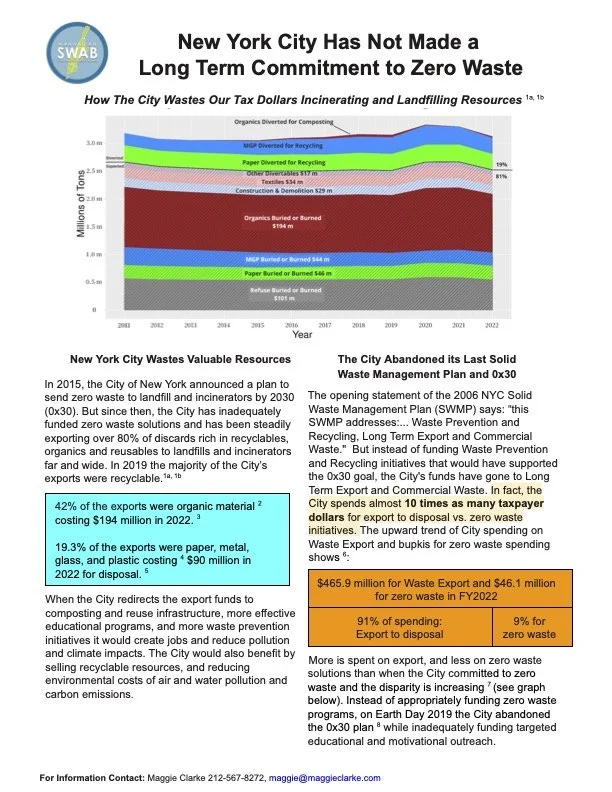
new york city has not made a long term commitment to zero waste
Learn how New York City is paying an ever-increasing amount to export the city’s waste.
-
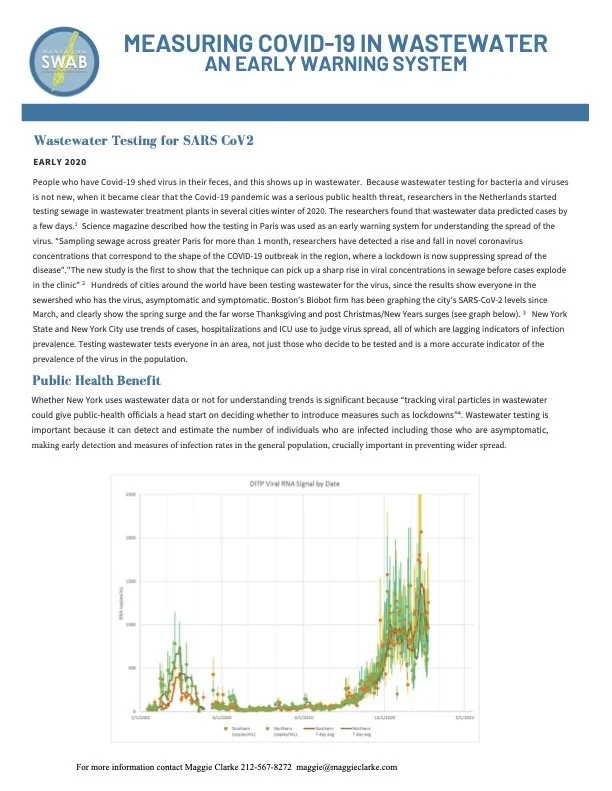
MEASURING COVID-19 IN WASTEWATER AN EARLY WARNING SYSTEM
People who have Covid-19 shed virus in their feces, and this shows up in wastewater. Because wastewater testing for bacteria and viruses is not new, when it became clear that the Covid-19 pandemic was a serious public health threat, researchers in the Netherlands started testing sewage in wastewater treatment plants in several cities winter of 2020. The researchers found that wastewater data predicted cases by a few days.
-

Consumer Demand And climate change
Learn how getting to Zero Waste is one of the most effective steps we can take to reduce carbon emissions.
-
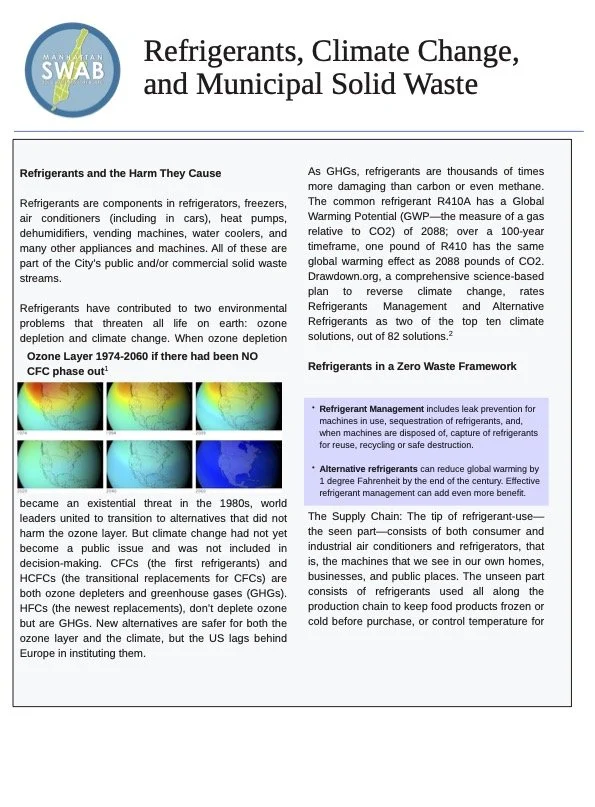
Refrigerants, Climate Change, and Municipal Solid Waste
Refrigerants and the Harm They Cause:
Refrigerants are components in refrigerators, freezers, air conditioners (including in cars), heat pumps, dehumidifiers, vending machines, water coolers, and many other appliances and machines. All of these are part of the City’s public and/or commercial solid waste streams.
Refrigerants in a Zero Waste Framework
Newsletter
Sign up to receive MSWAB news and updates.
